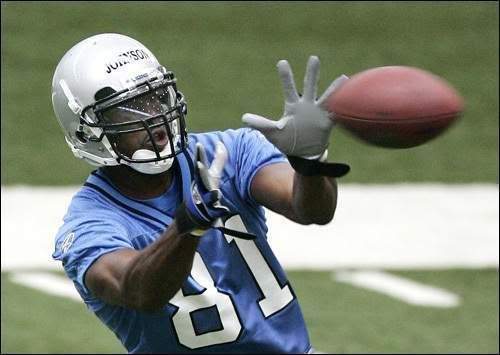 Each year fantasy owners must decide how much luggage they want to tote onto their 2010 fantasy football rosters. Before that can be done, we must first understand what “baggage” really means in fantasy football. READ MORE
Each year fantasy owners must decide how much luggage they want to tote onto their 2010 fantasy football rosters. Before that can be done, we must first understand what “baggage” really means in fantasy football. READ MORE What Is Baggage?
The concept of “baggage” is not new, but it’s meaning has progressed. Baggage is an umbrella word to collectively combine the history, track record, health concerns, etc. of each player into one lump sum. The sum then becomes a simple variable in our analysis of players each year. Every player has baggage in fantasy football-even the rookies.
Today, more than ever, blogs, tweets, text messaging and the rest of the online sharing capabilities are giving you the fantasy owner more access to player information than ever before. This evolution requires fantasy owners to learn the skill of sorting through the abundance of information. Everyone has always had an opinion, but now everyone is able to voice those opinions to the masses with relative ease.
Where To Claim Baggage?
 One of the most wonderful things about having so much information at our virtual fingertips is the ability to choose how to use it, if at all. Having such a large selection allows you to narrow you choices to those you deem the most valuable and informative to serve your own fantasy football needs.
One of the most wonderful things about having so much information at our virtual fingertips is the ability to choose how to use it, if at all. Having such a large selection allows you to narrow you choices to those you deem the most valuable and informative to serve your own fantasy football needs. Under the big umbrella are two main types of baggage: factual-based and opinion-based. Factual-based materials are usually rooted in statistics and player news. Opinion-based resources are typically authored works such as blogs, message boards and articles scattered on fantasy football themed web sites. Educating yourself on the type of information you personally seek and where to find it requires a small investment of time in the beginning but saves time during the season. When set up properly, search engines, bookmarks and RSS readers combine to provide a powerful tool in sorting through all the baggage quickly and efficiently.
Baggage Comes In Many Shapes, Sizes
More often than not, we use baggage to solidify our preconceived perceptions on a player. We never set out to do this, but subconsciously we do it to a fault. The more we want to like a player, the more likely we are to overlook any “baggage” that comes with that player. You do it when dating in high school and you do it in fantasy football. It’s only human, but you need to understand this going in or your biases towards players will lead you astray!
 Baggage is just one word used to depict perception in fantasy football. When the term ‘baggage’ is attached to a particular player’s name it is generally considered to be negative in nature. Yet the word ‘upside’ is generally viewed as a positive endorsement. Which words do you use when describing a player? Which words do your opponents use? An observant owner may be able to draw insight into how their competition values certain players just by listening in casual conversation or reading emails. That is also why it is important to pick your own words wisely when talking about players in the pre-season-especially in leagues comprised of intelligent fantasy footballers.
Baggage is just one word used to depict perception in fantasy football. When the term ‘baggage’ is attached to a particular player’s name it is generally considered to be negative in nature. Yet the word ‘upside’ is generally viewed as a positive endorsement. Which words do you use when describing a player? Which words do your opponents use? An observant owner may be able to draw insight into how their competition values certain players just by listening in casual conversation or reading emails. That is also why it is important to pick your own words wisely when talking about players in the pre-season-especially in leagues comprised of intelligent fantasy footballers. Sometimes the same word can be used when discussing “baggage related” items in both positive and negative outlooks. In breaking down a generic RBBC one might say, “as long as RB2 is there to steal carries away from RB1 his upside is limited.” One could also say, “RB2 may be stealing carries from RB1, but RB1 is still getting more touches around the goal line, giving him more upside than RB2.” Same RBBC, yet each statement provides a different perspective on the players involved and respective ‘upside.’ Even in fantasy football, one man’s trash can be another man’s treasure.
Words like “love” and “marketing” are used commonly yet express a vast number of meanings. In fantasy sports, “baggage” is no different.
BOXCAR Football updates are also available on RSS and Twitter!








